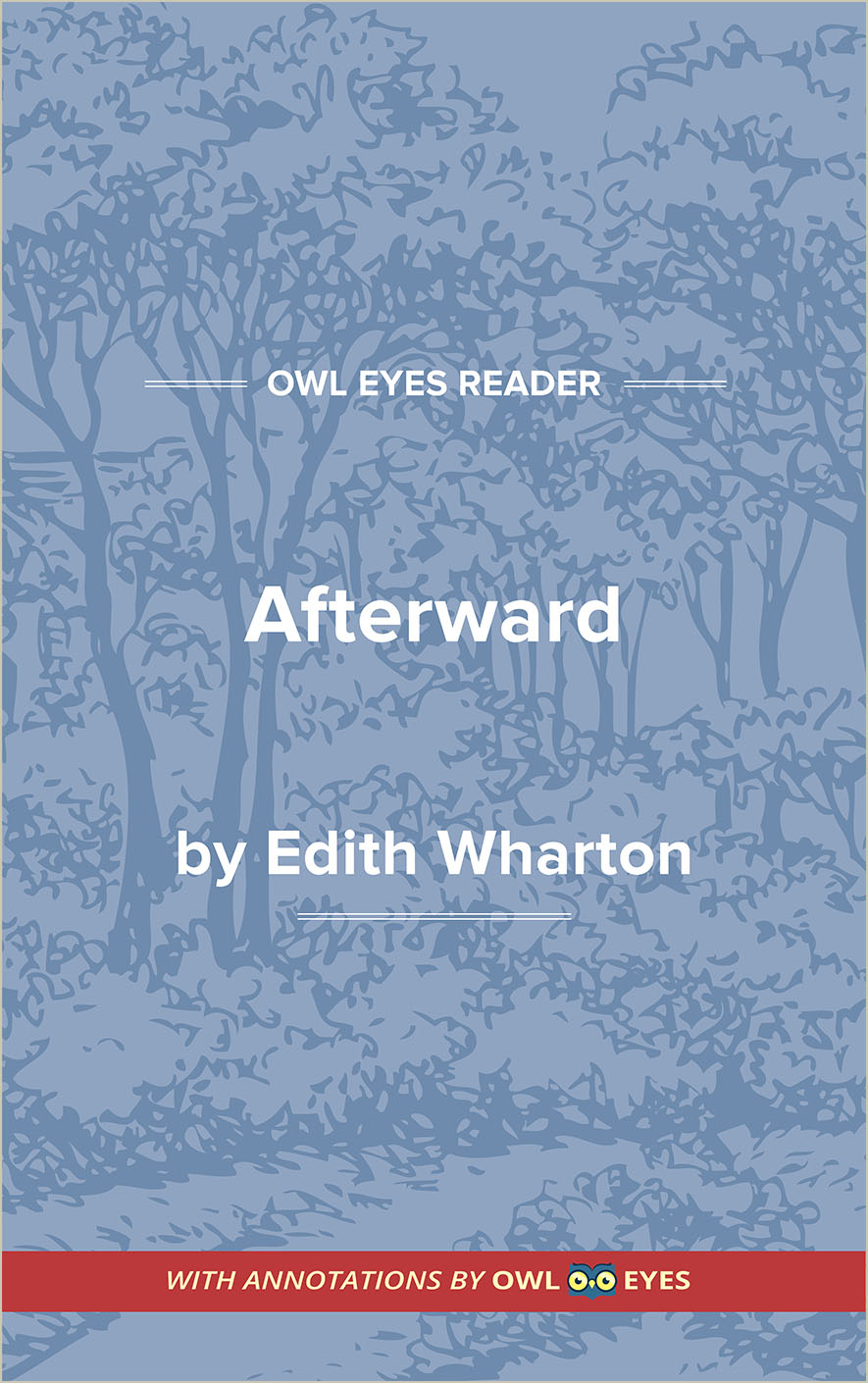Analysis Pages
Vocabulary in Afterward
Vocabulary Examples in Afterward:
I
🔒"frisson..." See in text (I)
"discarded as too ineffectual for imaginative use...." See in text (I)
"beyond the mullioned panes the downs were darkening..." See in text (I)
"sepulchral sound..." See in text (I)
"“But if it’s once been identified as an unearthly visitant, why hasn’t its signalement been handed down in the family? How has it managed to preserve its incognito?”..." See in text (I)
"“Well, there’s Lyng, in Dorsetshire. It belongs to Hugo’s cousins, and you can get it for a song.”..." See in text (I)
"they had rejected, almost capriciously, several practical and judicious suggestions..." See in text (I)
III
🔒"confabulation..." See in text (III)
IV
🔒"Lyng was not one of the garrulous old houses that betray the secrets intrusted to them...." See in text (IV)

